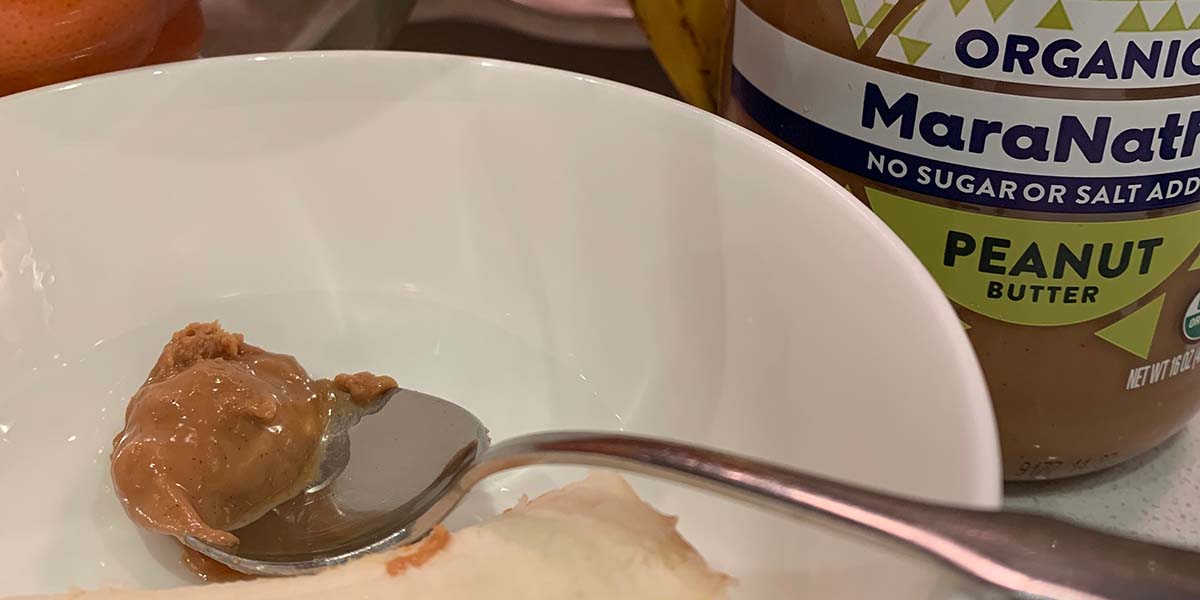For many families across Philadelphia, Bucks County, and Montgomery County, Halloween is filled with excitement,…

How to Help Your Baby Avoid Developing Food Allergies
By Dr. Manav Segal, Board Certified Allergist and Immunologist
I am often asked to provide parents guidance about when and how to introduce highly allergenic foods like peanut, milk, and egg to their children. Parents are learning that guidelines have been changing, and early introduction of these foods is the current recommendation. This prompted me to write an article to provide more clarity around the subject.
Changing recommendations about introducing foods that might pose risks for developing food allergies (allergenic foods) have raised concerns and confusion for parents. Food allergies can trigger reactions that vary widely in seriousness, but all are potentially severe.
One in 13 children have a food allergy. The most common highly allergenic foods include:
- cow’s milk
- hen’s egg
- soy
- wheat
- peanut
- tree nuts
- fish and shellfish
New efforts are being made to prevent food allergies. The latest recommendations suggest that early (ages 4 to 6 months) introduction and regular consumption of allergenic foods may reduce the development of food allergies.
Guidelines have evolved since 2000:
2000: American Academy of Pediatrics (AAP) suggested allergenic foods be delayed.
- Cow’s milk: 12 months
- Egg: 2 years old
- Peanut, tree nuts, fish: 3 years old
Recommendations were based on early studies that indicated delayed introduction of these foods might prevent the development of other allergic disease.
2008: It was recognized that there was not enough evidence to support delaying introduction of allergenic foods beyond 4 to 6 months of age. In fact, delayed introduction of allergenic foods may actually increase the risk for allergy.
2017: Recommendations by the AAP changed based on the LEAP (Learning Early About Peanut) and other published studies. More recent advice is that, in addition to breast feeding, complementary foods, including highly allergenic foods, may be introduced into the diet at any time within 4 to 6 months after birth.
If your baby already has food allergies:
- Make sure you have appropriate medical advice (see an allergist, they will guide you)
- Make sure you have a diagnosis and treatment plan (including epinephrine)
Determine if your baby is “high risk” for allergies:
High risk for food allergies is characterized by:
- Family history of allergy
- Personal history of allergy
- History of eczema
- If you are unsure, consult an allergist
Approach for infants at higher risk for allergic reaction
An allergy evaluation BEFORE introduction of highly allergenic foods is reasonable for infants with the following histories:
- Difficult to control moderate-to-severe atopic dermatitis (AD)
- Signs or symptoms of immediate allergic reaction while breastfeeding
- Signs or symptoms of immediate allergic reaction to any food (examples of symptoms to look for include hives or welts, flushing or rash, face, tongue, or lip swelling, vomiting or diarrhea)
Recommendations in “high risk” with severe atopic dermatitis and/or other food allergies based on the LEAP study:
- Refer to an allergist for testing
- If an allergist is not immediately available, have a serum peanut IgE level (blood allergy test) checked before referral
- If serum peanut IgE level is NEGATIVE, introduce peanut (this can be done at home or in your doctor’s office)
- If serum peanut IgE level is POSITIVE, see an allergist for additional evaluation including skin testing
When to introduce highly allergenic foods:
- Wait until your infant is at least 4 months of age
- Your child must be developmentally ready
- Your child should already be tolerating a few less allergenic foods such as rice cereal and pureed fruits and vegetables
Highly allergenic foods can be gradually and carefully introduced to asymptomatic, high-risk infants without testing:
- The first taste of highly allergenic foods can be given at home with an oral antihistamine available (just a spoonful to start of the allergenic food mixed with a food your baby al-ready eats and likes!)
- The amount of the food can be gradually increased over a few days.
- Plan to continue to include the allergenic food (for example, egg and peanut) in your baby’s diet. Recommended 3 times a week.
- Once your baby is eating more solid foods (between 6 to 12 months), the goal peanut dose would be 2 teaspoons of peanut butter, 3 times a week.
Approach for children at low risk for allergic reaction:
Complementary foods, including allergenic foods, may be introduced any time after 4 months of age.
How to introduce egg, peanut and cow’s milk:
- Introduce well-cooked egg or peanut butter/paste in small amounts to start.
- Do this during daytime feedings rather than evening so that you can monitor your child and respond if they have an allergic reaction.
- You can rub a small amount on the inside of your baby’s lip as a starting point. If there is no reaction, you can give the small amounts of the food.
- Be aware that smearing or rubbing your baby’s skin with the food will not identify possible food allergies.
- As the first step to introducing ingested foods, mix a small amount of egg or peanut butter (1/4 teaspoon) into your baby’s usual food.
- Yogurt can be used in the same way to introduce cow’s milk,
- Gradually increase the amount the next day (1/2 teaspoon) if your baby is not having aller-gic reactions.
What to do if your baby has an allergic reaction:
If you observe these signs of an allergic reaction in your baby, stop feeding your baby that food and seek medical attention:
- Swelling of the lips, eyes, or face
- Hives or welts
- Vomiting
- Change in your baby’s well-being
.
If there are signs of a more severe/anaphylactic allergic reaction:
- Difficult/noisy breathing
- Your baby becomes pale or lethargic
- Tongue swelling
Administer epinephrine and call an ambulance (911)
If other family members have food allergies:
It is still important to introduce allergenic foods to your baby. Keep the family member with food allergies safe:
- Feed your baby the food in a highchair
- Wash your hands, your baby’s hands and face after feeding
- Thoroughly wash all utensils
- Initially consider giving the food when the family member with the food allergy is not home
Food introduction resources
While it is not necessary to buy special food products to introduce these foods to your baby, there are some available that can make introduction easier:
- Ready. Set. Food.: This is a product that was featured on Shark Tank to help introduce peanut, milk, and egg.
- Spoonful One: This product was developed by Dr. Kari Nadeau, an allergist from Stanford University. The purpose is to introduce babies to several highly allergenic foods early (egg, milk, shrimp, salmon, peanut, almond, walnut, cashew, hazelnut, and wheat).
- Hello, Peanut!: Hello, Peanut! is a product to gradually introduce peanut to infants as young as 5 months.
- Lil Mixins: Lil Mixins offers powders and guidance to separately introduce highly allergenic foods including peanut, tree nuts, and egg.
Sources for this article:
-
- https://www.foodallergy.org/resources/what-food-allergy FARE Food Allergy & Research website. (Accessed on-line: 1/26/2020).
- Fleisher, D. Introducing highly allergenic foods to infants and children. https://www.uptodate.com/contents/introducing-highly-allergenic-foods-to-infants-and-children (Accessed on-line: 1/26/2020).
- https://www.allergy.org.au/patients/allergy-prevention/ascia-how-to-introduce-solid-foods-to-babies Australian Society of Clinical Immunology and Allergy. (Accessed on-line: 1/26/2020).
- https://www.healthychildren.org/English/ages-stages/baby/feeding-nutrition/Pages/Starting-Solid-Foods.aspx From the American Academy of Pediatrics. (Accessed on-line: 1/26/2020).
- Du Toit et al. Randomized trial of peanut consumption in infants at risk for peanut allergy. N Engl J Med. 2015;372(9):803. Epub 2015 Feb 23.
- Perkin et al. Randomized Trial of Introduction of Allergenic Foods in Breast-Fed Infants. N Engl J Med. 2016;374(18):1733. Epub 2016 Mar 4.
Manav Segal, MD is a board certified allergist and immunologist who treats asthma and allergies in children and adults at his Wyndmoor and Center City Philadelphia offices. Dr. Segal was the first allergist in the region to offer Oral Immunotherapy (OIT) as a treatment option for patients with food allergies. Dr. Segal has been recognized as a Top Doc in Philadelphia Magazine and by Main Line Today. He also has been featured on 6ABC Action News, CBS3, Fox 29, NBC10, WHYY and Main Line Parent magazine in Philadelphia. https://philadelphia-allergy.com/



